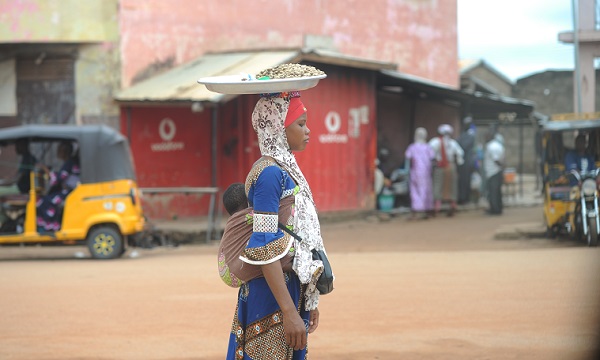
Many women in the north are victims of FGM
Ms Aisha Yakubu, 20, from Pusiga in the Upper East Region of Ghana is among 125 million young women in the world who have permanent scars on their bodies to show after surviving female genital mutilation.
According to Aisha, she was circumcised when she was nine years old although she was told by her mother in advance it would happen to her.
“The circumcision was performed in an elderly woman’s house which few girls of my age were gathered in a form of ceremony,” she said.
The activity looked like an annual festival, where some elderly women were dancing and singing traditional songs. Then, one by one, they began to perform the circumcision.
“The pain was unbearable after several days where I have to remain indoor to be given some herbal medications to heal the wound as well as to relieve me of the pains,” she added.
Female Genital Mutilation, popularly known as Female Circumcision is the partial or complete removal of external female genitalia.
Today, female circumcision is illegal, but the procedure continues to be conducted secretly in some rural communities in Northern Ghana.
Another victim, Charity (not real name), was only nine years old when she also underwent female genital mutilation (FGM) in a village near Pusiga.
According to her, she went into the process willingly believing that was her initiation into adulthood.
Narrating her story to The Spectator, she said she bled for a long time, and this scared other girls ready to undergo FGM then.
Victoria Yakubu, a Community Health Nurse who lives in Tamale, also shared her story of stigmatisation when her friends heard she was a victim of FGM.
“I felt very lonely and unwanted when the people around me knew I had no feeling when making love, it psychologically affected me. But as time went on, I mustered courage to feel who I am,” she added.
Now as a mother of two and an advocate against FGM, she urged the youth, community elders, traditional, religious leaders and parents to make sure innocent girls are not cut mercilessly because of traditional belief.
Mr. Francis Azienko from Pusiga said, “the circumcision is considered part of a cultural tradition performed to preserve young girls’ virginity and prevent pre and extra marital sex, early pregnancy as well as sexual transmitted diseases.
“Though the practice brought pain and scars to the innocent girls, I believe it also helped them to remain faithful,” he said.
Mr, Azienko said, though the procedure had been banned, it was carried out secretly in some communities in the Upper East Region.
From Geoffrey Buta, Pusiga.
